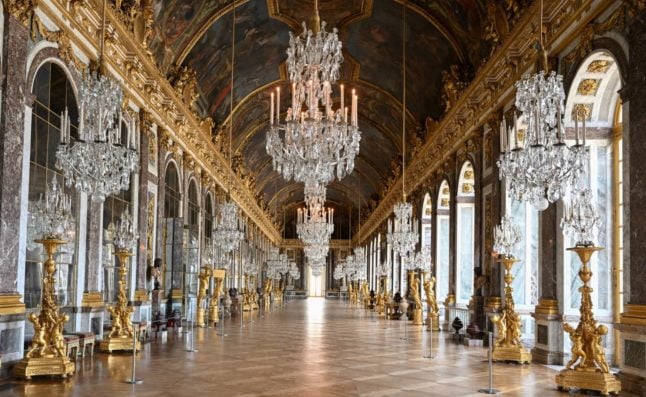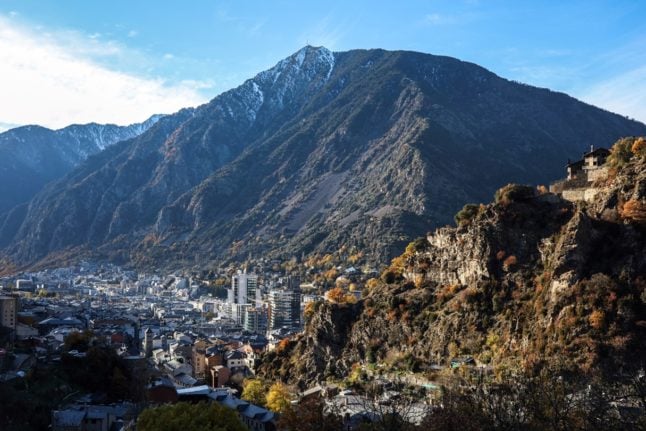Most visitors to France will know the Palace of Versailles, situated about 20km outside of Paris, as a tourist attraction.
The beautiful palace and its stunning gardens are open to visitors throughout the year and also stage events such as concerts, spectacles and fireworks displays.
But while its tourism status is important – it welcomes 15 million visitors a year and is France’s third most-visited tourist site – the Palace also retains a political importance in France.
Versailles was built originally as a royal residence, and Louis XIV upgraded it from a hunting lodge to the opulent and luxurious palace that we know today. His motives were political – the palace offered an alternative power centre to Paris for the royals while its fabulously luxurious decoration was a statement of intent to rival royals around Europe.
Even though Louis’ descendants were booted from power during the French Revolution, the palace that he created remained a centre of French and global politics.
These days day-to-day politics is done in the Assemblée nationale (lower house) and Sénat (upper house) and France has no king – even though some ironically style Emmanuel Macron as le roi.
But Versailles retains several important political functions;
Joint parliamentary meetings
On Monday, March 4th, Macron called a special Réunion du parliament en Congrès, a meeting of both houses of parliament together.
The occasion is an unusual one – a joint vote in order to change France’s constitution, the first constitutional change since 2008. In this case the vote is to enshrine the right to abortion in the constitution.
In order to make any changes to the constitution, both houses must pass the proposed text, and then a joint vote must be held resulting in an overall three-fifths majority in favour of the change.
READ ALSO How France’s constitution can be changed
The joint vote is held at the Palace of Versailles which has a semi-circular debating chamber, similar in appearance to the French parliament, known as the Salle de Congrès. For the occasion it has been fitted out with electronic voting systems to allow MPs and Senators to cast their vote in the historic parliamentary chamber of the palace.
The Salle de Congrès is also used as a neutral venue when the president wants to make a joint address to both houses of parliament.
Diplomacy
Actual votes being held in Versailles are rare, but the palace plays a regular diplomatic role with the president hosting state banquets for special visitors within its luxurious surroundings.
Foreign heads of state entertained at Versailles include two British royals (Elizabeth II and her successor Charles III), John F Kennedy and Vladimir Putin.
The palace has also been used for global diplomatic events such as the G7 summit.
Conferences
The palace can also be used when the president particularly wants to impress foreign visitors who are not heads of state – for example the 2023 Choose France summit, intended to entice foreign investors into sinking their cash into French businesses, was held at Versailles.
Macron and his finance minister Bruno Le Maire hosted business leaders from around the world including Elon Musk.
Presidential retreat
Within the Versailles estate is a small former hunting lodge known as La Lanterne, which is an extra official residence for the president.
The French president is housed in the grand Elysée Palace in central Paris, which functions as both a home and a workspace – similar to the White House in the USA. The president also gets the use of Brégançon, a holiday villa on the French Riviera which heads of state typically move to during July and August for the summer holidays.
But since 2007 they have also had the use of La Lanterne, before that it was used by French prime ministers.
Although it’s not often used, it is the place where Macron retreated to in order to quarantine when he was diagnosed with Covid in December 2020.
The building’s name comes from its 366 carefully-positioned windows, which make the most of the natural light.
Weddings
If you’re very rich and you have lots of friends, you can host your wedding party at Versailles, since several parts of the palace are available for private hire.
The official website is rather coy about the exact price of this, simply stating that you will be “making a contribution to the upkeep of the palace” but it’s probably safe to say that this doesn’t come cheap. Couples who have celebrated their weddings there include French business tycoon Carlos Ghosn and his wife Carole. He later became an international fugitive, but that’s probably not relevant.
Couples should note that in order to be legally binding, weddings in France must include the formal bit at the marie of the commune where you either live or have a ‘close connection’.
READ ALSO Can you get married in France if you don’t live here?
Parts of the palace can also be hired out for other private events such as parties or business conferences.
Films
The Palace has a busy schedule as a film backdrop for period dramas, with the courts of the French royals – renowned even at the time for style and scandal – proving ever popular as a subject for films or TV series.
Olympics
And this summer the 787 hectares of grounds at Versailles will provide the backdrop to a different event – the Olympics and Paralympics.
Although most events of the Paris 2024 Games will be held within the city itself, there are some that are a little further afield, including the equestrian events which will be held in the grounds of Versailles. Tickets for these events sold out fast, no doubt partly due to the spectacular venue, but if you’re watching on TV look out for plenty of artistic shots showing the palace and gardens in the background.



 Please whitelist us to continue reading.
Please whitelist us to continue reading.
Member comments